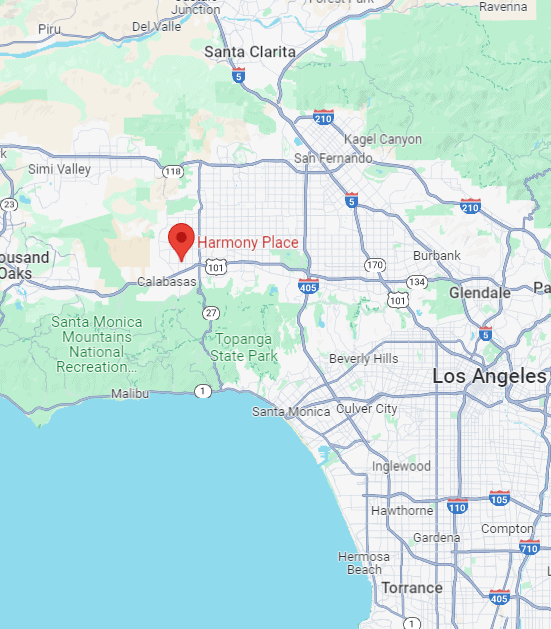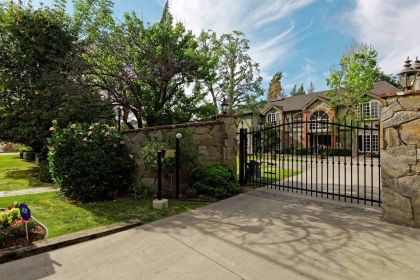How to Pay for MAT in Los Angeles, California
Harmony Place has several addiction recovery treatment centers that will help you figure out how to pay for medication-assisted treatment in Los Angeles. There are many ways to cover rehab costs for evidence-based addiction treatment, such as medication-assisted recovery. Paying for MAT in LA or determining how to afford MAT can be stressful.
Are you wondering if MAT is covered by insurance? Most California rehab assistance programs, like Harmony Place, that offer FDA-approved addiction medications, accept most private insurance MAT coverage under the Affordable Care Act (ACA). You may still have to pay some out-of-pocket MAT costs. Whether you have coverage or are paying for rehab without insurance, our affordable addiction recovery is here to help you if you require substance abuse recovery on a budget, including dual diagnosis treatment.
What Is MAT – Medication Assisted Treatment?
Medication-Assisted Treatment (MAT) is an addiction medication treatment approach. It’s utilized in substance abuse recovery programs to reduce the risk of overdose and death. It also increases treatment retention, relieves cravings, stabilizes your body, and assists with withdrawal symptoms. It is particularly common when treating Alcohol Use Disorder (AUD) and Opioid Use Disorder (OUD).
Combining counseling and behavioral health therapies with FDA-approved addiction medications has been proven to assist in long-term sobriety. Some common medications for opioid addiction include methadone maintenance and buprenorphine-based options such as Suboxone medication treatment. If you’re dealing with AUD, you may be prescribed acamprosate, disulfiram, and naltrexone for addiction.
What Is a MAT Rehab in LA?
A Medication-Assisted Treatment (MAT) rehab provides medication-assisted recovery if you’re struggling with substance abuse, especially Alcohol Use Disorder (AUD) or Opioid Use Disorder (OUD). MAT incorporates FDA-approved addiction medications with behavioral therapy and counseling services to help you attain sobriety.
This evidence-based addiction treatment reduces cravings, alleviates withdrawal symptoms, supports lasting sobriety, and improves outcomes. If you’re worried about how to pay for MAT in Los Angeles, contact us at Harmony Place to speak with one of our admissions counselors about our low-cost MAT programs and financial assistance for MAT, including rehab payment plans.
MAT Info and Statistics in Los Angeles, California
Medication-Assisted Treatment (MAT) in Los Angeles is evidence-based addiction treatment that involves medication-assisted recovery—utilizing FDA-approved addiction medication fused with behavioral therapies and counseling for addressing substance abuse, especially alcohol and opioid addiction. Alarming statistics concerning opioid use highlight the pressing need to broaden MAT programs in Los Angeles.
The California Overdose Dashboard reported 7,385 opioid-related deaths and over 21,000 emergency room visits in 2022 alone. In Los Angeles, there has been a concerted effort to increase MAT access, particularly for vulnerable groups, such as individuals within the criminal justice system. In November 2020, the Countywide Criminal Justice Coordination Committee (CCJCC) collaborated with Health Management Associates (HMA) and California Health Policy Strategies (CalHPS) to enhance access to MAT and other substance use disorder (SUD) treatments within the county’s justice framework.
What Are the Benefits of Paying for a Private MAT Program in LA?

Paying for a private Medication-Assisted Treatment (MAT) program in Los Angeles comes with many advantages, especially if you’re seeking discreet, fast, and customized addiction recovery care. Private rehabilitation facilities like Harmony Place provide quality care, individualized attention, flexibility, comfort, and security. Private MAT programs can be an excellent investment for your lasting wellness.
Shorter Admission Wait Times
When you select a private MAT program, you can expect a significantly shorter wait time for admission. Public programs have long queues due to high demand and limited resources. Gaining access to an MAT program swiftly will assist in reducing your risk of relapse or overdose.
Personalized MAT Plans
Private MAT treatment programs provide a more tailored experience instead of a one-size-fits-all strategy. On top of conducting assessments, private programs take your medical history, personal goals, and substance abuse patterns into consideration. This allows healthcare providers to pinpoint the FDA-approved addiction medication that is the best fit for your body.
Comfortable Addiction Treatment Accommodations
When you attend a private MAT program, you will have better accommodations. Private MAT treatment programs in Los Angeles feel akin to a wellness retreat instead of a medical clinic. The living quarters are incredibly comfortable, clean, peaceful, and offer various amenities. This assists in reducing stress and anxiety throughout the treatment process.
Greater Privacy and Confidentiality
If privacy is a key priority for you while seeking Medication-Assisted Treatment (MAT) for addiction recovery, a private MAT program will provide you with a higher level of discretion. This is important for public figures and professionals, especially if you’re worried about stigma. Private MAT treatment centers enforce strict confidentiality protocols and tend to be in exclusive areas, allowing for greater anonymity.
Freedom in Selecting a Program
Dissimilar to public Medication-Assisted Treatment (MAT) programs, private MAT programs allow you to decide on various treatment styles and locations, like a facility in the city or a holistic MAT program in the rural hills. This gives you more freedom to customize your recovery from addiction to best meet your lifestyle and personal preferences.
Access to Advanced Rehab Techniques and Therapies
Private MAT treatment centers are often equipped with the most state-of-the-art technological advancements, the latest addiction research, and advanced therapy techniques. Some of these might include neurofeedback, dual diagnosis treatment, alternative healing methods, and trauma-informed therapy. These modern developments may not be available at public MAT programs.
Ideal Staff-to-Patient Ratios
Private MAT programs typically have lower staff-to-patient ratios, ensuring you receive the care and attention you need throughout your recovery. This provides more personalized guidance, faster response times for emotional or medical needs, and consistent check-ins.
How Much Does MAT Cost Without Insurance Coverage in Los Angeles?
The costs associated with Medication-Assisted Treatment (MAT) without insurance coverage in Los Angeles will depend on the medication prescribed, additional services incorporated with your care, and the treatment facility. Medication costs can range from $100 to $450 per month, while outpatient MAT programs and Intensive Outpatient Programs (IOPs) can range from $500 to $15,000 for 30 days.
Additional treatment services, such as therapy and medical detox, can cost extra. Individual therapy sessions can cost up to $200. A medical detox cost can vary, ranging from $250 to $800 per day. Contact us at Harmony Place to learn more about our medication-assisted recovery options and rehab payment plans.
How to Pay for MAT Without Health Insurance Coverage
Paying for Medication-Assisted Treatment (MAT) in Los Angeles without insurance can feel daunting and impossible. Still, there are several alternative ways to find funding for addiction treatment, from scholarships for rehab programs and sliding scale addiction treatment to grants for addiction treatment and government assistance for rehab. It’s best to be proactive if attending drug rehab without insurance.
Fundraising via Crowdfunding or Local Community for MAT
Crowdfunding platforms such as Fundly, GoFundMe, and YouCaring can be powerful tools for helping you secure the necessary financial support for your MAT program. These platforms let you detail your situation, set a funding goal, and give updates.
Several local community resources, such as churches, recovery organizations, and charities, are also available. These charities may host a benefit concert, garage sale, or bake sale to help you gain the funds you need to attend an MAT program.
Pay for MAT with COBRA Insurance
If you lost your job but had employer-sponsored health insurance coverage, the Consolidated Omnibus Budget Reconciliation Act (COBRA) will let you temporarily continue your existing health plan. This may include MAT costs.
This buys you time to delve into a more long-term solution while allowing you to receive the care you need. Confirming your plan to ensure you have MAT coverage and fully understand your out-of-pocket expenses is crucial.
Private Self-Pay for MAT Facility
Paying out of pocket might be a great option if you have some money stashed away. Many MAT rehab facilities offer discounts for paying upfront. This tactic allows you to have more control over your addiction recovery treatment, such as being able to select a MAT facility and healthcare provider without the limitations that an insurance company can set.
As a bonus, you do not have to fight network restrictions or wait for certain approvals. It’s essential to verify with the MAT treatment center about potential hidden fees or costs of additional services.
Sliding Scale Fees with MAT Program
Several MAT programs offer sliding scale addiction treatment fees that are contingent on your income and ability to pay. So, even with limited income, you can access the necessary care. Sliding scale programs are widespread at community clinics and non-profit health organizations. These MAT centers aim to break barriers and help you attain treatment.
Contact your local health department to discover the closest MAT programs for this sliding scale payment plan.
Flexible Payment Plans with MAT Program
Most MAT recovery centers offer flexible rehab payment plans, which make accessing the care you need more manageable and affordable. Rehab payment plans divide the total costs into reasonable monthly payments.
You must review the terms and conditions of the payment plan, paying close attention to the interest rates, what happens if you miss a payment, and the duration of the repayment plan.
Network of Family, Friends, and Local Community
Speaking to your loved ones about helping you finance your addiction recovery can feel embarrassing and challenging. However, often, support networks are more eager to help someone they care about through this difficult time. Outside your inner circle, local community support can be incredibly beneficial, providing funding assistance for addiction treatment or organizing donation drives to help you.
Churches, community centers, and mutual aid groups can also link you with individuals who have gone through similar experiences and provide guidance.
Non-Profit Organizations for MAT Scholarships
Alternative financing for rehab can also come from nonprofit addiction treatment support. Many non-profit organizations offer scholarships for rehab programs and grants for addiction treatment, which can cover some or all of your addiction recovery expenses. A typical application requires documentation, a personal essay, and interviews.
Some sources to seek out include SAMHSA-funded centers, 10,000 Beds, and local foundations. Remember, scholarship openings are usually limited, so submitting your application early and being as thorough as possible is essential.
Government Assistance Programs or EAPs for MAT Rehab
You may be wondering if Medicaid covers MAT. State and federal programs like Medicaid, state-funded rehab centers in California, and government assistance for rehab in the form of grants for addiction treatment all offer financial aid for Medication-Assisted Treatment (MAT).
If you’re currently employed, confirm with your Human Resources department about Employee Assistance Programs (EAPs). An EAP typically provides short-term referrals, counseling, and occasionally substance abuse treatment like MAT. This can be a valuable resource you can benefit from while you sort out a more long-term solution.

How to Pay for Suboxone Treatment Without Health Insurance Coverage in LA
Paying for Suboxone costs without health insurance in Los Angeles can be difficult, but there are many affordable addiction recovery options out there. Many facilities offer sliding scale addiction treatment that is based on your income. Additionally, many nonprofits and community health centers provide Medication-Assisted Treatment (MAT) free of charge or at a drastically reduced price.
State-funded rehab in California offers grants for addiction treatment. Furthermore, the Substance Abuse and Mental Health Services Administration (SAMHSA) has a treatment center locator that can direct you toward free or low-cost MAT programs. Simply search for “free MAT programs near me.” Government assistance for rehab is also a viable option when deciding how to pay for medication-assisted treatment in Los Angeles.
How to Pay for Methadone Treatment Without Health Insurance Coverage in LA
There are several methadone clinic payment options without health insurance in Los Angeles. Numerous facilities provide sliding scale addiction treatment based on your income. Additionally, many nonprofit organizations and community health centers offer Medication-Assisted Treatment (MAT) for free or at significantly reduced rates.
In California, state-funded rehab programs provide grants for addiction treatment. Moreover, the Substance Abuse and Mental Health Services Administration (SAMHSA) has a tool to help you locate treatment centers, guiding you to free or low-cost MAT programs. Simply filter your results to find payment options for MAT programs in your area. Government support for rehabilitation is another practical option to help cover the expenses of your MAT.

Private MAT Programs in Los Angeles That Offer Flexible Payment Options
Harmony Place has private Medication-Assisted Treatment (MAT) programs in Los Angeles that provide flexible financial aid for substance abuse rehab. At our rehabilitation centers in Woodland Hills, we can outline your MAT cost with insurance or help you figure out how to pay for rehab without insurance. Call us today at (855) 652-9048.
Harmony Place
23041 Hatteras St.
Woodland Hills, CA 91367
Harmony Place East
22913 Burbank Blvd.
Woodland Hills, CA 91367
Finding a MAT Center Near Me
If you are seeking substance abuse treatment, trying to locate the best Medication-Assisted Treatment (MAT) center will assist you throughout your addiction recovery. Finding an MAT facility near you will remove travel-related barriers, ensure access to ongoing support, and help you fully commit to your recovery plan. Here is a step-by-step guide to help you:
- Utilize SAMHSA’s Treatment Locator
Visit the Substance Abuse and Mental Health Services Administration (SAMHSA) website. Then enter your zip code or city to discover nearby Medication-Assisted Treatment (MAT) providers, with options to filter by treatment type, payment methods, and accepted insurance. - Reach Out to the National Helpline
Call SAMHSA’s confidential helpline, 1-800-662-HELP (4357), 24/7. A trained representative will help you find tailored MAT programs in your area. - Contact Local Health Departments
Contact your state or county health department. Many maintain directories of local treatment resources and can direct you to clinics that provide MAT services and state-funded rehab in California. - Consult Your Primary Care Provider
Your doctor or healthcare provider might refer you to a reliable MAT center nearby. Numerous primary care offices are now authorized to prescribe buprenorphine or collaborate with local programs. - Inquire at Local Hospitals or Clinics
Certain hospitals and community health clinics offer MAT services or can connect you with trustworthy partners. These facilities often also provide integrated care and counseling. - Explore Online Directories
Locate MAT providers using search engines or health-focused directories such as Psychology Today or Zocdoc. Be sure to check reviews and confirm credentials. - Join Local Recovery Groups
Addiction recovery communities like Narcotics Anonymous (NA) or SMART Recovery may have insights on nearby MAT treatment providers and can provide personal recommendations based on their experiences.
How to Pay for and Get Into a MAT Facility in Los Angeles
Getting into and paying for Medication-Assisted Treatment (MAT) in Los Angeles involves several steps, from realizing the need for help and navigating payment options to engaging in treatment and setting up aftercare support. There are multiple esteemed MAT programs, but understanding how to pay for MAT in Los Angeles is crucial.
Recognize the Need for MAT
Recognizing the need for assistance is often the most crucial and challenging step. Medication-Assisted Treatment (MAT) is beneficial if you’re struggling with substance abuse. It’s commonly use in alcohol use and opioid use disorder treatment. This approach integrates FDA-approved addiction medications with behavioral therapy, offering a holistic treatment strategy.
Determining if MAT is the right choice requires sincere self-reflection and support from family and friends. If you’re combating withdrawal symptoms, intense cravings, or recurring relapses despite your efforts to maintain sobriety, MAT could be a viable and potentially life-saving solution.
Research MAT Programs and Consult with Professionals
Once you’ve acknowledged the need for addiction recovery treatment, exploring available MAT facilities in Los Angeles is essential. Seek licensed treatment centers offering experienced medical staff, personalized treatment plans, and supportive therapy options. The Substance Abuse and Mental Health Services Administration (SAMHSA) website is an excellent resource for locating certified MAT programs in your area.
After creating a list of potential facilities, consult with healthcare professionals or addiction specialists. They can help evaluate your specific needs, clarify medication options such as methadone, buprenorphine, or naltrexone, and direct you to facilities that align with your health and addiction recovery objectives.
Assess Payment Options for MAT
Paying for MAT in Los Angeles can be a valid concern, but various solutions are available. Most MAT facilities in Los Angeles accept various insurance plans, including Medi-Cal, Medicare, and private insurance MAT coverage. Confirming your coverage with your insurance provider and the treatment center is essential to understand which services are covered and the potential out-of-pocket expenses you might incur.
If you’re paying for rehab without insurance, numerous treatment centers provide options such as rehab payment plans, sliding-scale addiction treatment, or access to state-funded rehab in California. Don’t hesitate to inquire about financial aid for substance abuse rehab or grants for addiction treatment that could alleviate some of the costs.
Contact the MAT Facility and Complete the Intake Process
After choosing an MAT facility, the next step is to make direct contact. Most MAT centers have admissions coordinators to answer your inquiries and guide you. Be ready to provide personal and medical information to assess your eligibility and tailor your treatment plan.
The intake process often includes evaluations, drug screenings, and a comprehensive medical and mental health history review. This is crucial to ensure the MAT program meets your needs and confirms that you are a suitable candidate for medication-assisted recovery. Establishing this foundation is vital for a safe and effective treatment experience.
Prepare for MAT Rehab and Enter Detox (if Needed)
Before starting Medication-Assisted Treatment (MAT), you may need to undergo a medically supervised detox to handle withdrawal symptoms safely. The detoxification process often serves as the initial step in the MAT program, particularly if you have been using opioids or alcohol heavily or for long durations.
Preparing for rehabilitation includes practical arrangements such as arranging transportation, notifying employers or family members, and mentally gearing up for a significant lifestyle change. MAT involves more than just medication-assisted recovery; it’s about reconstructing your life with the appropriate support and mindset.
Engage in the MAT Process
Upon enrollment, the MAT program initiates with the administration of FDA-approved addiction medications to stabilize brain chemistry and curb cravings. Consistent appointments with doctors and therapists ensure your progress is monitored and any necessary adjustments to your treatment plan are made.
Participating in counseling sessions, support groups, and behavioral therapies is also crucial. These services are tailored to help you comprehend the underlying causes of addiction, cultivate healthy coping strategies, and maintain your commitment to long-term sobriety.
Prepare for Aftercare – Develop a Course of Action with Support
Addiction recovery extends beyond the conclusion of the MAT program; aftercare planning is a crucial component. Before discharge, your MAT program team will assist you in creating a tailored aftercare plan that may involve ongoing medication management, outpatient therapy, sober living arrangements, or peer support meetings.
A robust support system plays a vital role in sustaining addiction recovery. Whether it consists of family, friends, a sponsor, or a recovery coach, continuous encouragement and accountability can significantly lower the chances of relapse while fostering long-term wellness. MAT marks the beginning of a lifelong path toward health and stability.
Request a Callback About Paying for Benzo Treatment
Affordable Rehab Payment Options at Harmony Place
Harmony Place works with clients across Southern California to create affordable payment solutions for addiction recovery. Learn how to pay for detox, alcohol rehab, dual diagnosis, and more.
Statistics About and Paying for MAT in Los Angeles, California
- Medication-Assisted Treatment (MAT) is a method for addressing addiction that combines the use of medication with counseling and additional support. According to the U.S. Department of Health and Human Services, if you’re struggling with opioid addiction, this approach is often considered the most effective option.
- In November 2020, the Countywide Criminal Justice Coordination Committee (CCJCC) approved a motion to collaborate with consultants from Health Management Associates (HMA) and California Health Policy Strategies (CalHPS) in efforts to enhance access to Medication-assisted treatment (MAT) and other Substance Use Disorder (SUD) treatments for individuals within the criminal justice system of Los Angeles
- According to the National Library of Medicine, a cost-effectiveness study found that combining Medication-Assisted Treatment (MAT) with contingency management, overdose education, and naloxone distribution for treating opioid use disorder resulted in substantial health benefits and cost savings when compared to no treatment.
- In March 2019, California reported that 96,960 people were enrolled in substance use treatment, including Medication-Assisted Treatment (MAT), with 60.1% treated for drug issues only, 10.9% for alcohol issues only, and 29.0% for both, according to the California Behavioral Health Barometer.
- In 2022, the CA Overdose Dashboard reported 7,385 opioid overdose deaths and 21,316 related emergency room visits, highlighting the importance of accessible and affordable MAT programs.


















